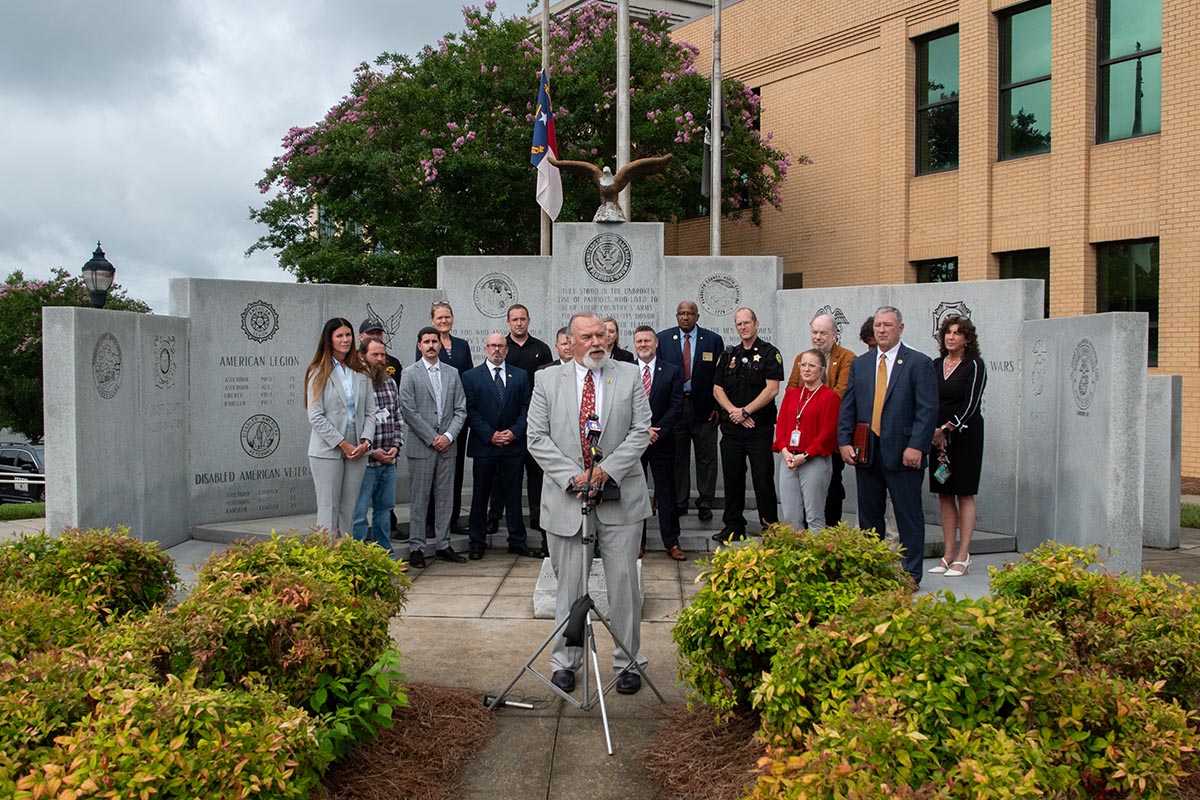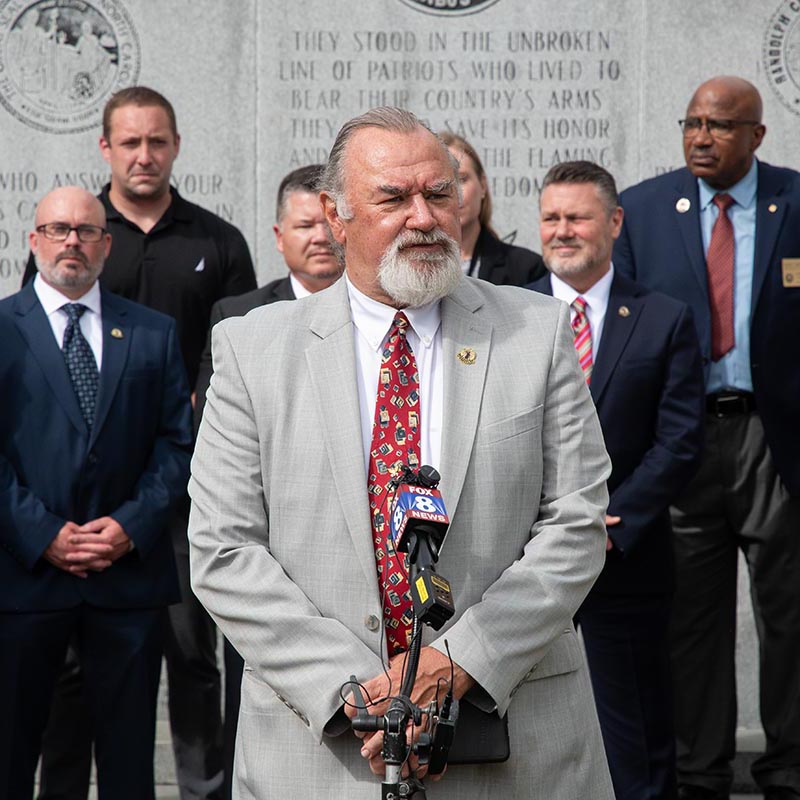Welcome!

Judge Rob Wilkins speaks at a press conference following the first session of the Randolph County Veterans Treatment Court on June 5, 2025. (Scott Pelkey / for the Randolph Hub)
Specialty Veterans Court Focuses On Treatment Instead of Jail Time
ASHEBORO — A new specialty court in Randolph County aims to help veterans facing nonviolent criminal charges by connecting them with treatment and support services rather than incarceration.
The Randolph County Veterans Treatment Court (VTC) held its first official session on June 5 at the Randolph County Courthouse, making it the 14th such court now operating in North Carolina. The court is designed for veterans and active-duty military personnel charged with nonviolent misdemeanors or felonies who also have substance use disorders and/or mental health conditions such as PTSD or traumatic brain injuries.
In a press release, the Sheriff’s Office describes the court as addressing “the unique challenges Veterans may face, including mental health issues, substance use disorders, and trauma, including post-traumatic stress disorder (PTSD) and traumatic brain injuries (TBIs), by connecting them with treatment services, mentoring, and a structured judicial process.”
District Court Judge Rob Wilkins, a U.S. Coast Guard veteran who retired after 21 years of service, presides over the court and said at the press conference that the Randolph County VTC is the result of years of persistence.

“This is a project that is near and dear to my heart,” Wilkins said. “Eight years ago, we tried to establish a VTC for Randolph, Moore, and Montgomery counties but couldn’t get funding. Since then, the state’s judicial leadership has shifted, and we finally have support at the administrative level. This is the result of years of hard work and partnership—and it’s a dream come true.”
The VTC is a post-plea, voluntary program. To qualify, individuals must be Randolph County residents, have completed at least one day of active-duty service (not including training), commit to abstaining from drugs and alcohol, and follow a treatment and supervision plan. That includes probation, regular court appearances, drug testing, and compliance with all court policies. (Active duty military members are also eligible.)
“This is not a get-out-of-jail-free card,” District Attorney Andy Gregson said at the press conference following the court’s opening session. “Participants are screened very carefully and subject to my discretion. We look at their criminal record, the nature of the offense, their willingness to get help, and the views of the victims. This isn’t a handout—it’s a hand up.”
Participants typically spend 16 to 24 months in the program. Successful graduates may be eligible for charges to be dismissed one year after completion, provided they remain compliant with probation and recovery requirements.
Studies show Veterans Treatment Courts can reduce recidivism and improve outcomes for justice-involved veterans, particularly when supported by strong local partnerships and adequate resources, though effectiveness varies by location and implementation.
Veterans Treatment Court Coordinator Laura Pate noted that justice involvement is a major risk factor for veteran suicide and that many incarcerated veterans have never received services from the VA.
“This court is an alternative to incarceration,” Pate said. “We surround participants with a team that includes other veterans, treatment providers, and people who truly care. The goal is to get them back on the right path—and back to the life they deserve.”
“Sometimes it's much harder to adapt back into society, than it is to go fight a war, and we should be there to help these veterans,” said Randolph County Sheriff Greg Seabolt at the press conference.
Randolph County’s VTC team includes representatives from the Sheriff’s Office, District Attorney’s Office, Public Defender’s Office, Probation and Parole, mental health providers, the Department of Veterans Affairs, as well as volunteer veteran mentors. The program is supported by an $851,663 federal grant from the U.S. Department of Justice’s Bureau of Justice Assistance, awarded in 2023 to fund planning and implementation over three years. Randolph County was one of only four recipients nationwide.
